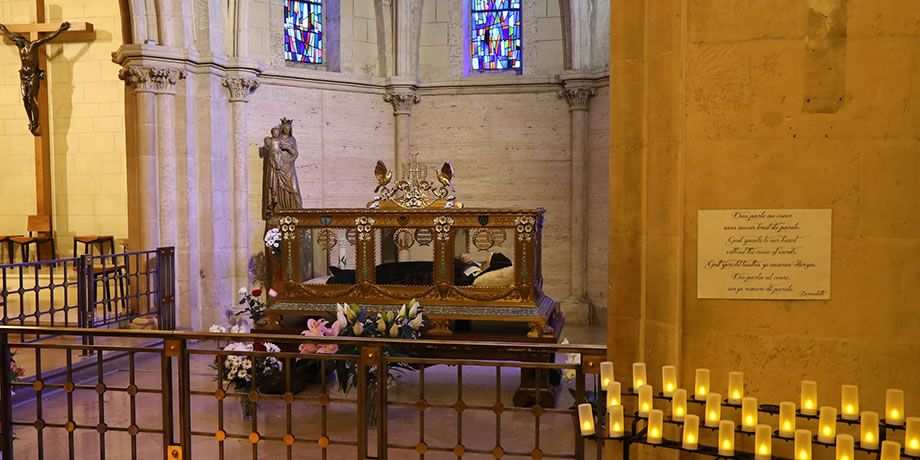
St. Bernadette sanctuary in the city of Nevers, France
Many times, I have recounted my vocational journey and how reading the novel, The Song of Bernadette by Franz Werfel, changed my life’s trajectory. However, what I never related was the specific traits of St. Bernadette Soubirous’ personality that awakened my lapsed Catholic faith.
As a child, I was fascinated with the lives of the saints. I enjoyed hearing about their mystical experiences of visions and miracles. As I looked back, I realized I rarely knew their human side, their practical life. This changed with St. Bernadette. As a young adult, after reading the novelization of St. Bernadette’s life, it was not Bernadette’s visions of Our Lady of Lourdes nor the miracle of her incorruptible body, but Bernadette’s personality and her hidden life in the convent that touched me.
The 1943 Hollywood production of The Song of Bernadette was well-produced and acted. In fact, the lead actress, Jennifer Jones, won an Oscar for her portrayal of St. Bernadette. After reading the novelization version of St. Bernadette, I sought more authoritative biographies on her, such as Abbe Francois Trochu’s book, St. Bernadette Soubirous: 1844-1879. To my surprise, I discovered that Bernadette was not the mild, meek girl that was portrayed in the movie. On the contrary, she was quite stubborn and not easily intimidated. For instance, she often got bored during the interrogations by the civil authorities who doubted her visionary experiences. Once, after an interrogation, she jokingly remarked about how the tassel on the interrogator’s hat bounced around like a church bell when he yelled at her. I chuckled, learning that Bernadette had a sense of humor.
As a visionary, Bernadette gained an unwanted celebrity status in France, which she rejected. She desired a life of hidden service. This is a stark contrast to today’s culture of addiction to social media recognition. Upon entering the Sisters of Charity convent in Nevers (France), the mother superior convoked the entire community to listen to Bernadette’s account of the visions and ask questions. This was a one-time event and all were strictly forbidden to ever again discuss the matter with Bernadette for which she was grateful.
However, this didn’t stop cardinals, bishops, nobles, and wealthy benefactors from visiting the convent and requesting an audience with the little visionary of Lourdes. Often, Bernadette was summoned away from her tasks to attend to the requests which she detested but complied out of obedience. Once, Bernadette was walking the halls of the convent when she came across a woman who appeared to be lost. Bernadette inquired what the woman wanted. Completely unaware of who Bernadette was, the woman replied that she wanted to see the little visionary of Lourdes. Bernadette pointed to a door and said, “If you watch that door, you’ll see the little visionary pass through it.” Without another word, Bernadette left her presence and walked through the door.
For the mission belongs to God, and only God decides how the mission will be done.
Bernadette had a great desire to serve in the foreign missions, but her frail health prevented it. Often, she was in the infirmary due to an illness of one type or another. Eventually, the mother superior placed Bernadette in charge of the infirmary stating that since she was not good for much and spent all her time in the infirmary, she might as well be in charge. This proved to be providential due to Bernadette’s knowledge of traditional medicines which made her an excellent nurse. The Sisters often praised her curative skills and compassionate bedside manner. She dedicated herself completely to the mission that she was given.
It seems to me that St. Bernadette’s traits — stubbornness, sense of humor, rejection of worldly fame, and silent service — are missionary traits. For the mission belongs to God, and only God decides how the mission will be done. The missionary only serves, often in silence in hidden places of the world but with a sense of humor and a stubborn fortitude that all will work out in God’s time.
It is strange to imagine that a peasant girl from 19th-century France, a person so unlike myself, was to become a powerful spiritual guide in my missionary journey. However, as our patron, St. Columban, stated, “a life unlike your own can be your teacher.”
Columban Fr. Chris Saenz lives and works in St. Columbans, Nebraska.
